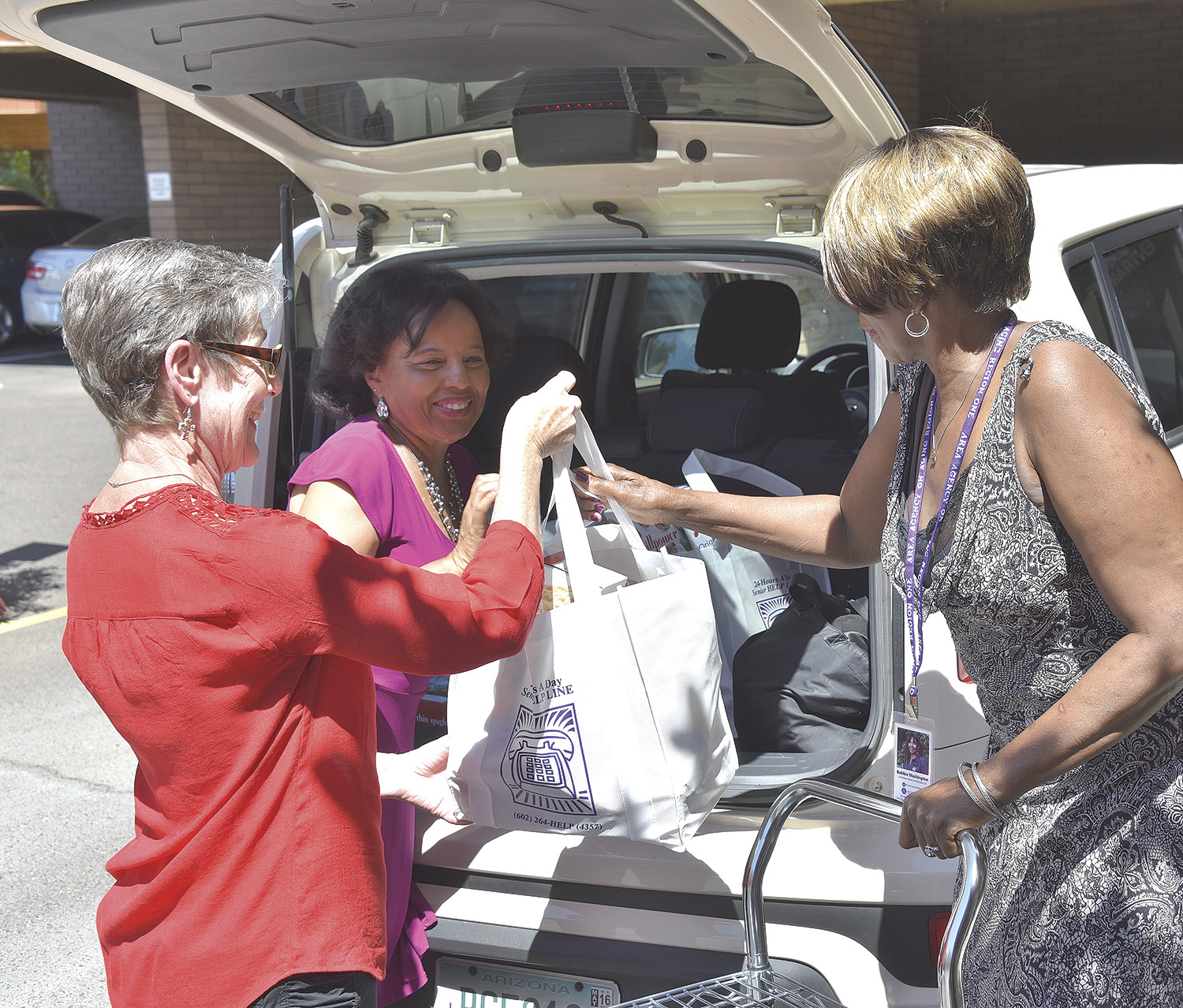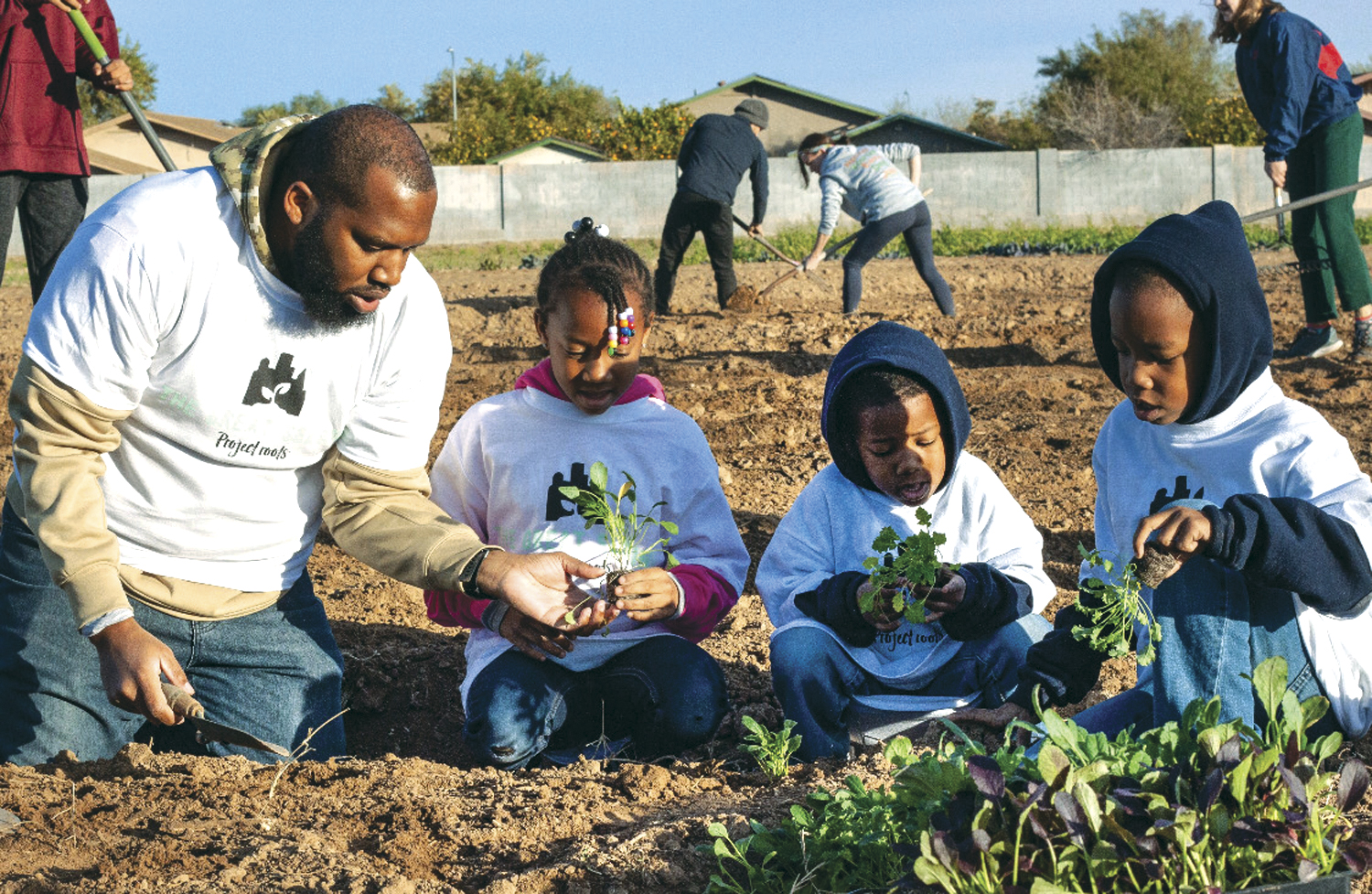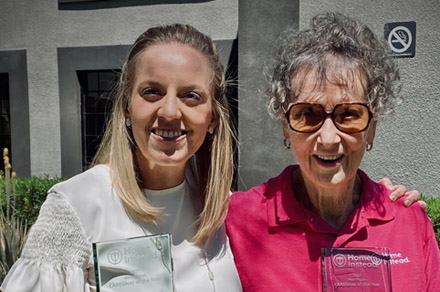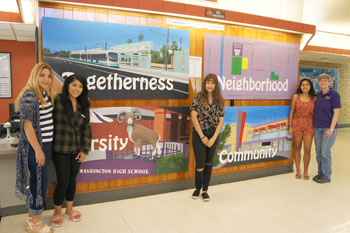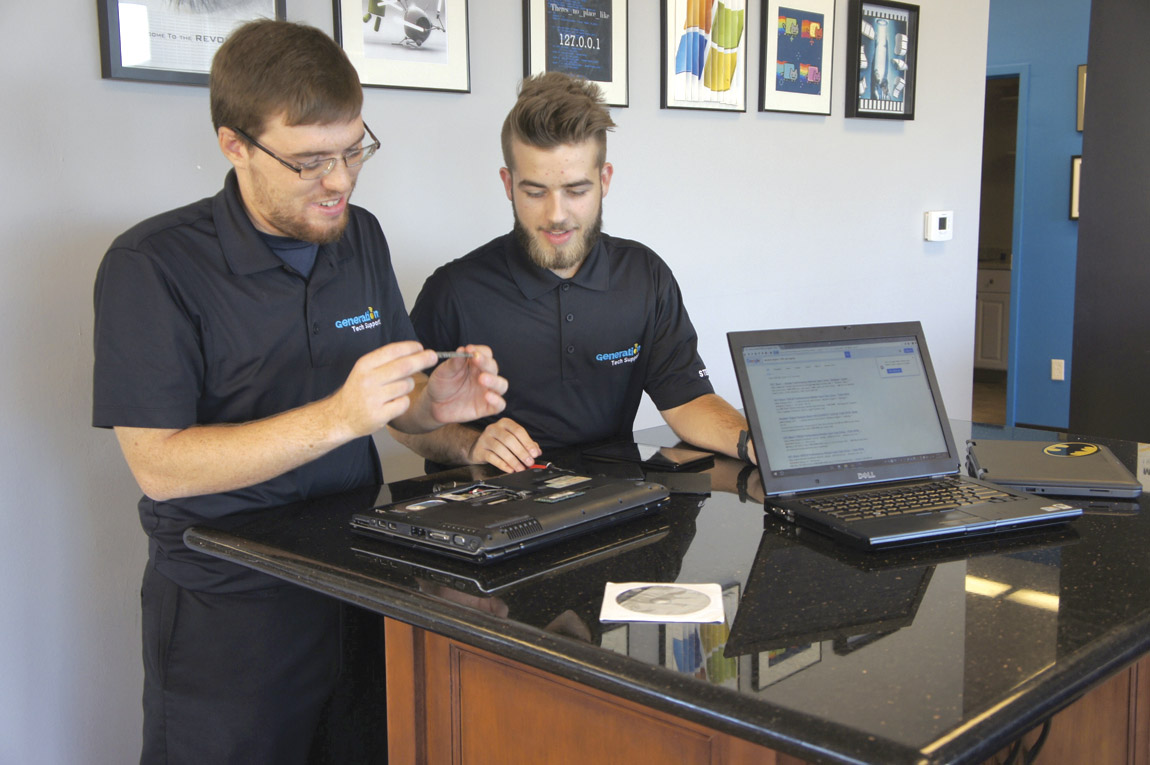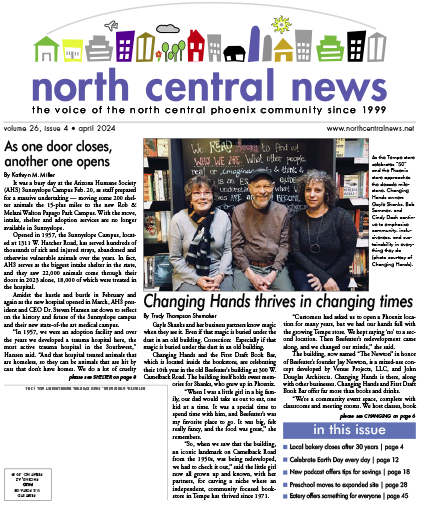North Central Phoenix non-profit organizations, city officials, businesses and individuals are rallying to help elderly residents, children and others that are vulnerable as the community struggles to stay afloat amid the Coronavirus pandemic.
It is quiet on the streets and outside of restaurants and other businesses that have closed or dramatically reduced their operations in the area. Many residents are staying home in order to follow recommendations to limit contact with others in an attempt to stop the spread of the disease.
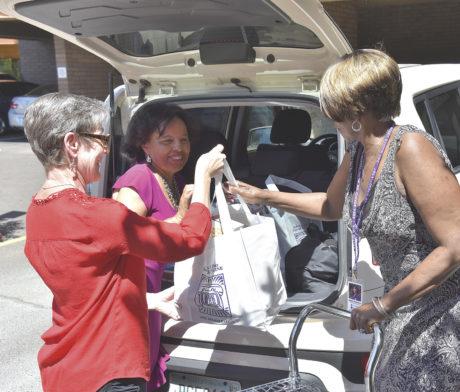
Volunteers for the Area Agency on Aging load food bags into a vehicle to be delivered. Area Agency on Aging, Region One, Incorporated, is helping seniors and people ages 18 to 59 who are homebound and have physical disabilities to access food and other support during the Coronavirus pandemic (photo courtesy of Area Agency on Aging).
Gov. Doug Ducey and Arizona State Superintendent of Public Instruction Kathy Hoffman last month ordered schools across the state to stay closed until at least April 10 to protect the health and safety of children and the community. School administrators were instructed to make every attempt possible to offer continued education learning opportunities through online resources or materials. While in-person classes were suspended, school administrators worked with the Arizona Department of Education to provide free-of-charge breakfast and lunch services for all students in the state.
The city of Phoenix in response to the virus closed all of its downtown buildings except to people who make appointments ahead of time. City Council meetings switched to being held without any audiences in-person but are streamed online and residents can offer comments through email or over the phone. All city library locations and book drops were temporarily closed and city senior centers are shut down, but meals are being delivered to senior center members. Job training and workshops offered at the city’s three Arizona@Work-Phoenix job centers were canceled until further notice and indoor recreational centers were closed. Hospitals have dramatically limited visitors to try to reduce the spread of the virus. Phoenix is keeping its 9-1-1, police, fire, public transit, trash pick-up and other needed services running. Mayor Kate Gallego declared a state of emergency for the city and ordered the closure of bars, as well as restaurants except for offering to-go/curbside-pickup services.
“#StayHome is the most commonly repeated phrase now,” Gallego posted on Twitter recently. “Staying home doesn’t just protect you & loved ones it protects those who don’t have the choice – our medical professionals. In Italy, 1 in 10 of those infected w/ #COVID-19 were health-care workers. Protect them by protecting you.”
City of Phoenix parks also are still open where many residents are walking, bicycling and hiking to get some exercise and find entertainment as restaurants, theaters and other venues were closed and many live performances canceled. The Centers for Disease Control and Prevention and other experts urged people to stay at home if they felt sick, to frequently wash their hands, to cover their sneezes and coughs and to maintain a distance of 6 feet away from anyone else while in public.
Ducey late last month issued an Executive Order carrying out an Enhanced Surveillance Advisory to speed up tracking of COVID-19 cases and strengthen the ability of the Arizona Department of Health Services to respond to the outbreak.
During these chaotic and scary times, residents, non-profit organizations, community groups, city of Phoenix staff members and businesses reached out to help the community obtain food, medicine and other necessities, especially elderly residents as they are among the most vulnerable to the virus. Businesses offered discounts and specials, with some yoga studios providing free classes online.
Although the city of Phoenix has closed its senior centers, the facilities contacted members to arrange to deliver meals to them at their homes.
The Area Agency on Aging, Region One, Incorporated, which helps seniors in Maricopa County, has been much busier with phone calls from residents asking how to obtain food and other needed items, said Mary Lynn Kasunic, president and CEO of the Area Agency on Aging for Maricopa County.
“We’re asking healthy people in the community to donate food, like individual servings of food, that we can give to people having trouble grocery shopping,” Kasunic said. “Some of our clients, they’re frail and they can’t get shopping.”
The Area Agency on Aging is looking for canned soup, canned vegetables, cereal, tuna fish and other non-perishable items. Call 602-264-2255 to make arrangements to donate the food. Mature adults can call the Senior Help Line, a 24-hour information and assistance resource and central intake for the Area Agency on Aging at 602-264-4357 (HELP).
Seniors also should contact their pharmacy to arrange to pick up prescriptions as far ahead of time as possible or to order them online for delivery, Kasunic said.
Area Agency on Aging serves not only people ages 60 and older, but also those ages 18 to 59 that are homebound and have physical disabilities. Besides providing for basic necessities, Area Agency on Aging also has volunteer ombudsmen who check on people in their homes, but due to the Coronavirus these volunteers are calling them on the phone to inquire about their well-being.
“Most people right now are feeling kind of alone,” said Melissa Elliott, vice president of programs and services for the Area Agency on Aging for Maricopa County. “If they feel like they need to talk to somebody, I would recommend their health insurance probably has some type of mental health support that they can tap into.”
Churches and other community groups also may offer support with many congregations holding their services online.
Kasunic encourages people to check on their neighbors to make sure they are doing okay, especially older adults.
Phoenix Rescue Mission also is busy helping people in need. The organization helps people dealing with hunger, homelessness, addiction and trauma. It offers residentially-focused centers with recovery programs where residents can live for seven to 18 months as they heal from substance abuse, gain job skills, complete their GED and receive other support to get back on their feet, said Ryan Brown, public relations manager for the Phoenix Rescue Mission. There are still some spaces available at those centers. To learn more, call the men’s center at 602-346-3390 or the women’s residential facility at 602-688-6219.
The organization’s Hope for Hunger Food Bank at 5605 N. 55th Ave. in Glendale has been “ramping up” to try to help people struggling with food security, Brown said. It is asking for donations of non-perishable foods since grocery stores donations to the food bank have slowed down. Drop off food from 7:30 a.m. to 3:30 p.m. Mondays through Fridays at the Phoenix Rescue Mission’s warehouse at 3440 W. Lewis Ave., building G, Suite A. Or make a financial donation online at phoenixrescuemission.org/hope-for-hunger.
“People are scared about their jobs, they’re scared about the future,” Brown said.
Local resident and Realtor Diane Brennan posted online that she will help anyone in the community obtaining groceries or running other errands.
“I think it’s especially important we help out our neighbors right now who feel alone, helpless and don’t have family to rely on,” Brennan said. “Whatever we can do to alleviate their stress and make them feel more comfortable during these stressful times, the better.”
She said anyone who needs help can call her at 602-620-2277.

